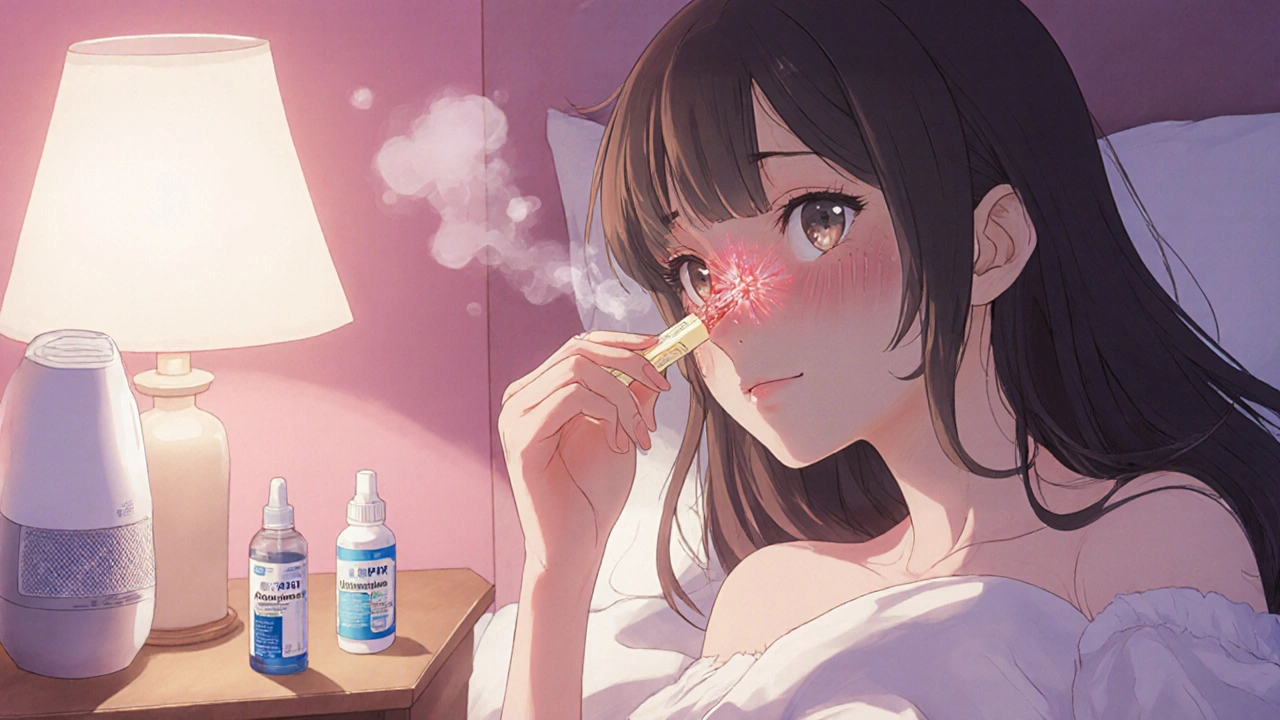
Medication-Induced Nosebleed Risk Checker
This tool helps you understand your risk of nosebleeds related to medications you're taking. Select the medications and factors that apply to you, then check your risk level to get personalized prevention advice.
Your Medications
Additional Risk Factors
Your Risk Assessment
Recommended Prevention Steps
Why Your Nose Bleeds When You Take Certain Medications
It’s not just dry air or a bad habit of picking your nose. If you’ve been getting frequent nosebleeds and you’re on regular medication, there’s a good chance the two are connected. Nosebleeds from medications are more common than most people realize - and they’re not always harmless. Even everyday drugs like ibuprofen or low-dose aspirin can make your nasal blood vessels more likely to rupture. The good news? You can often stop them before they start.
Which Medications Are Most Likely to Cause Nosebleeds?
Not all drugs affect your nose the same way. Some thin your blood. Others dry out your nasal lining. Both paths lead to the same result: bleeding.
NSAIDs - like ibuprofen (Advil, Motrin), naproxen (Aleve), and ketoprofen - are among the top offenders. These drugs block enzymes that help your blood clot. Even if you take them only occasionally, they can lower your body’s ability to seal off tiny breaks in the nasal lining. A single dose might be enough to trigger a bleed if your nose is already irritated.
Aspirin, even in the low 81mg dose used for heart protection, does the same thing. Many people don’t realize this daily pill is a blood thinner. It doesn’t just protect against clots - it also makes bleeding easier. If you’re on aspirin and getting nosebleeds more than once a week, it’s worth talking to your doctor.
Anticoagulants like warfarin (Coumadin) and antiplatelet drugs like clopidogrel (Plavix) are even stronger. These are prescribed for serious conditions - heart disease, stroke risk, blood clots - but they come with a trade-off. Your blood takes longer to clot. That means even a small bump or dry crack in your nose can turn into a messy, scary bleed. In some cases, this requires emergency treatment.
Decongestant sprays like oxymetazoline (Afrin) are a sneaky culprit. They shrink blood vessels in your nose to relieve congestion - but if you use them for more than three days in a row, your body rebounds. The vessels swell back bigger than before, and the lining dries out. This cycle weakens the tissue, making it easy to bleed. It’s not the spray itself causing the problem - it’s how long you’ve been using it.
Antihistamines and allergy pills can also dry out your nasal passages. If you’re on these daily for seasonal allergies, your nose might feel like parchment paper - thin, brittle, and prone to cracking.
How These Drugs Actually Cause Bleeding
Your nose isn’t just a passageway for air. Inside, there’s a dense network of tiny blood vessels called Kiesselbach’s plexus. It’s one of the most vascular areas in your whole body. That’s why even a small scratch can cause bleeding.
NSAIDs and aspirin work by blocking cyclooxygenase enzymes. These enzymes help make thromboxane A2 - a chemical that tells platelets to stick together and form clots. Less thromboxane means slower clotting. Your body can’t seal the leak fast enough.
Warfarin and other anticoagulants interfere with vitamin K, which your liver needs to produce clotting factors. Without enough of these factors, your blood just doesn’t coagulate well. Even a minor nosebleed can last longer than expected.
Decongestants cause a different problem. They shrink blood vessels immediately, but then your body compensates by making them wider and more fragile. Over time, the mucous membrane dries out, loses its protective layer, and cracks open. No trauma needed - just dry air and overuse.
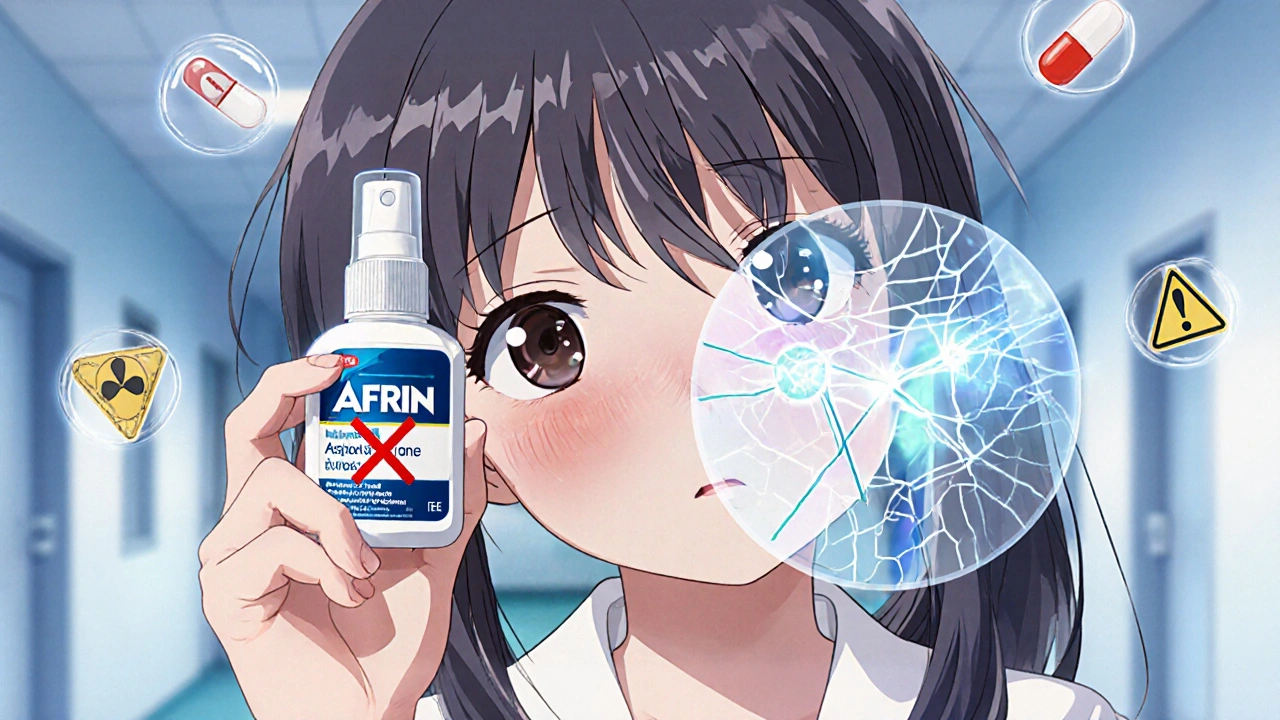
Who’s Most at Risk?
Some people are more likely to get medication-related nosebleeds than others.
- Adults over 45 - Blood vessels naturally become more fragile with age.
- People with high blood pressure - Higher pressure in the vessels makes them more likely to burst.
- Those with bleeding disorders - Even mild clotting issues can be worsened by meds.
- Pregnant women - Hormones cause nasal blood vessels to expand. Add a decongestant or NSAID? Risk goes up.
- Children - They pick their noses. Combine that with allergy meds or ibuprofen? Nosebleeds become common.
- People using nasal sprays long-term - Rebound congestion is real, and it’s damaging.
How to Prevent Medication-Induced Nosebleeds
Stopping nosebleeds doesn’t always mean stopping your meds. Often, it’s about changing how you protect your nose.
- Switch from NSAIDs to acetaminophen - If you’re taking ibuprofen or naproxen for pain or fever, try acetaminophen (Tylenol) instead. It doesn’t interfere with clotting. It’s just as effective for most aches and pains.
- Moisturize your nose daily - Apply a thin layer of petroleum jelly (Vaseline) inside each nostril two to three times a day, especially before bed. Saline nasal gel or spray works too. Do this even if your nose feels fine. Prevention beats treatment.
- Use a humidifier - Especially in winter, indoor air drops below 30% humidity. That’s dry enough to crack your nasal lining. A cool-mist humidifier in your bedroom can make a big difference.
- Never use decongestant sprays longer than 3 days - Follow the FDA’s rule. If congestion lasts longer, see a doctor. There are safer, long-term options for allergies and sinus issues.
- Avoid nose picking or rubbing - This is the #1 trigger. Even if your nose feels itchy or crusty, don’t dig in. Use a saline spray to loosen debris instead.
- Keep your head upright during a bleed - Tilt your head back? That sends blood down your throat. You might gag or vomit. Lean forward slightly and pinch your nose shut.
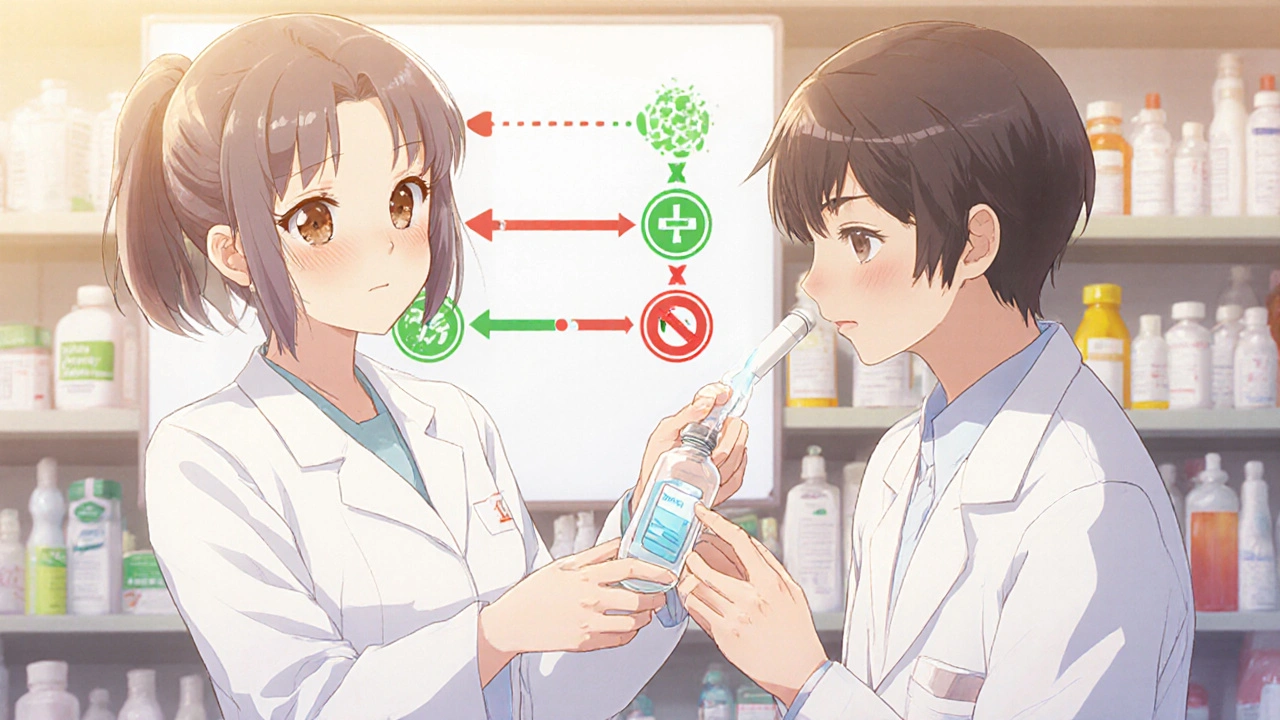
When to See a Doctor
Most nosebleeds stop on their own. But some are warning signs.
Call your doctor or go to urgent care if:
- The bleeding doesn’t stop after 20-30 minutes of steady pressure
- You feel dizzy, lightheaded, or faint
- You’re swallowing a lot of blood (it tastes metallic, makes you nauseous)
- You have other unexplained bruising or bleeding - gums, urine, stool
- You’ve had more than three or four nosebleeds in a week
- The nosebleed followed a fall, injury, or blow to the face
- You’re on warfarin, Plavix, or another blood thinner and the bleed lasts more than 10 minutes
If you’re on anticoagulants, even a small nosebleed should be monitored. Your INR level (a blood test that measures clotting time) may need checking. Don’t wait until it’s severe.
What Your Pharmacist Can Help With
Pharmacists are often the first to spot medication-related nosebleeds. They see your full list of prescriptions and over-the-counter drugs. If you’ve been getting frequent nosebleeds, bring your medication list to your pharmacist. They can:
- Identify which drugs are likely causing the issue
- Suggest safer alternatives (like switching from NSAIDs to acetaminophen)
- Warn you about dangerous combinations (e.g., aspirin + warfarin)
- Advise on proper nasal care while staying on necessary meds
Don’t stop your meds on your own. If you’re on blood thinners for a reason - like atrial fibrillation or a history of clots - stopping them can be dangerous. The goal isn’t to quit your meds. It’s to manage the side effects so you can keep taking them safely.
Bottom Line: You Don’t Have to Live With Nosebleeds
Nosebleeds from medications aren’t normal - they’re a signal. Your body is telling you something’s off. Maybe it’s the drug, maybe it’s how you’re using it, or maybe it’s your environment. But you can fix it.
Start with the basics: moisturize your nose, skip NSAIDs if you can, use a humidifier, and avoid picking. If it keeps happening, talk to your doctor and your pharmacist. They can help you balance your health needs with your comfort. You don’t have to choose between staying healthy and avoiding nosebleeds. With the right adjustments, you can do both.
Can aspirin cause nosebleeds even at low doses?
Yes. Even the low 81mg daily dose used for heart protection can thin your blood enough to increase nosebleed risk. It blocks platelet function, making it harder for your nose to stop bleeding after minor irritation. If you’re getting frequent nosebleeds and take aspirin daily, talk to your doctor about whether it’s still necessary - or if there’s a safer alternative.
Is it safe to use Afrin if I get nosebleeds?
No - not for more than three days in a row. Afrin (oxymetazoline) shrinks blood vessels quickly, but overuse causes rebound congestion and dries out your nasal lining. This weakens the tissue and makes bleeding more likely. If you need long-term relief for congestion or allergies, ask your doctor about saline sprays, nasal corticosteroids, or allergy treatments instead.
Should I stop my blood thinner if I get nosebleeds?
Never stop a blood thinner like warfarin or Plavix without talking to your doctor. The risk of a stroke or clot is often far greater than the risk of a nosebleed. Instead, focus on prevention: moisturize your nose, avoid NSAIDs, use a humidifier, and monitor how often you bleed. If nosebleeds are frequent or heavy, your doctor may check your INR or adjust your dose - but don’t make changes on your own.
Can children get nosebleeds from medications too?
Yes. Kids are more prone to nosebleeds overall because they pick their noses and have delicate nasal linings. Medications like ibuprofen or antihistamines can make it worse. If your child has frequent nosebleeds and is on regular meds, talk to their pediatrician. Switching to acetaminophen for fever or pain and using saline spray daily often helps a lot.
What’s the best way to stop a nosebleed at home?
Sit upright and lean slightly forward. Pinch the soft part of your nose shut with your thumb and index finger. Hold it for 10-15 minutes without checking. Don’t tilt your head back - that makes you swallow blood, which can upset your stomach. After the bleeding stops, avoid blowing your nose or bending over for the next few hours. If it doesn’t stop after 20 minutes, seek medical help.
Can dry air alone cause nosebleeds, or do I need to be on meds?
Dry air alone can cause nosebleeds - especially in winter. But if you’re on medications like NSAIDs, anticoagulants, or decongestants, dry air makes it much worse. The combination of a fragile nasal lining and poor clotting creates a perfect storm. That’s why moisturizing your nose and using a humidifier are so important - especially if you’re on any of these drugs.

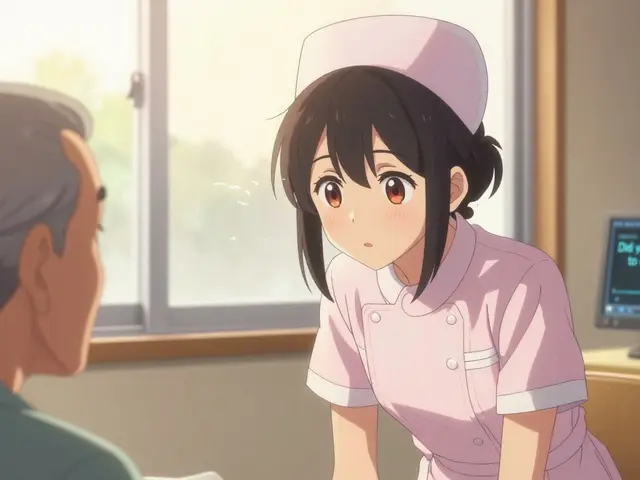
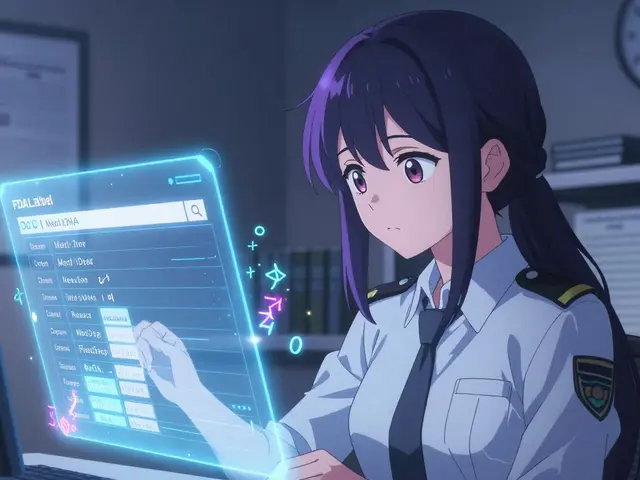
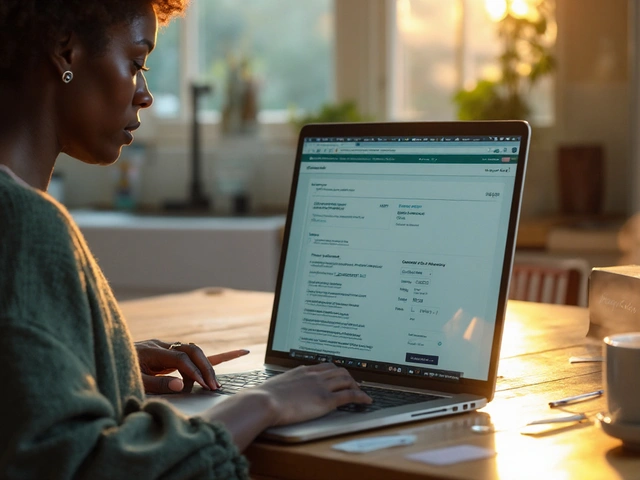

Comments (15)
Christina Abellar
Moisturizing with Vaseline at night changed everything for me. No more morning drips.
Margo Utomo
YAS. I switched from ibuprofen to Tylenol after my third nosebleed in two weeks 🙌
Also, humidifier = my new BFF. No more crusty nostrils. 🌬️❤️
Georgia Green
I didn't realize aspirin was a blood thinner until I started getting nosebleeds. My doctor checked my INR and said it was fine, but I cut back to every other day. Haven't bled since.
Typo: 'bleed' not 'blead' lol
Sylvia Clarke
Let me just say - the fact that we’ve normalized bleeding from our own faces as ‘just part of life’ is a societal failure. We take pills like they’re candy, then act shocked when our mucous membranes revolt. And yet, no one talks about how pharmaceutical companies profit from the side effects they engineer into drugs. It’s not negligence - it’s business. We’re not patients. We’re revenue streams.
Also, Afrin is not a treatment. It’s a trap. A velvet-lined trap with a tiny, addictive hook. You think you’re fixing congestion. You’re actually surrendering your nasal integrity to corporate chemistry.
Jennifer Howard
It is imperative to note that the misuse of over-the-counter analgesics, particularly nonsteroidal anti-inflammatory agents, constitutes a public health hazard of considerable magnitude. One must not underestimate the hemostatic implications of cyclooxygenase inhibition, especially in elderly populations with comorbid vascular fragility. Furthermore, the indiscriminate use of petroleum-based ointments may occlude mucosal epithelium, potentially leading to secondary infection. One must consult a licensed physician before altering therapeutic regimens.
Noel Molina Mattinez
I use Afrin every day and I never bleed why are you all so dramatic
Dave Feland
Did you know the FDA has known since 1998 that decongestant sprays cause rebound vasodilation? They didn’t warn people because the pharmaceutical lobby paid for the silence. Same with aspirin - they downplayed the bleeding risk for decades so they could keep selling it as ‘heart-healthy.’ Wake up. This isn’t medicine. It’s controlled substance management disguised as healthcare.
Ashley Unknown
I had a nosebleed during a Zoom meeting and my boss asked if I was ‘on drugs.’ I swear to god I almost cried. I take blood pressure meds and low-dose aspirin. I moisturize my nose with coconut oil. I use a humidifier. I don’t pick. I don’t blow. I do everything right. And yet - I bleed. Why? Because the system is broken. They don’t care if your nose bleeds. They care if your insurance premium goes up. I’m not just bleeding from my nose - I’m bleeding out from the healthcare industrial complex. 🩸💔
Julie Roe
Hey, I just want to say - if you’re reading this and you’re scared because you’ve been getting nosebleeds, you’re not alone. I used to get them every other day. I was terrified I had cancer or a tumor or something. Turns out? I was on ibuprofen for my back pain and using Afrin for my allergies. I switched to Tylenol, started using saline gel twice a day, and got a humidifier for my bedroom. It’s been three months. Zero bleeds. I know it sounds too simple. But sometimes the answer isn’t a new pill - it’s a little moisture and a lot of patience. You’re doing better than you think. Keep going.
Also, if you’re on blood thinners - don’t panic. Talk to your doctor. Don’t stop. Just protect your nose. You’ve got this.
George Gaitara
Wow. So much information. Honestly, I just read the title and thought ‘this is a scam.’ Who cares about nosebleeds? Just suck it up. Also, why are we treating this like a medical emergency? People bleed from their noses all the time. It’s not a big deal. Probably just stress or bad air. Why are we turning a minor annoyance into a full-blown pharmaceutical panic? I didn’t need to read 12 paragraphs to know to stop picking my nose.
Eva Vega
From a pharmacovigilance standpoint, the iatrogenic etiology of epistaxis in the context of antiplatelet and anticoagulant therapy is well-documented in the literature. The Kiesselbach plexus, being a high-flow vascular anastomosis, is particularly vulnerable to hemostatic perturbations induced by COX-1 inhibition. Prophylactic nasal hydration with lipid-based emollients reduces mucosal transepidermal water loss, thereby mitigating epithelial fissuring. The concomitant use of NSAIDs with warfarin significantly elevates the risk of clinically significant hemorrhage, per CHA₂DS₂-VASc guidelines.
Deepali Singh
Interesting. But let’s be honest - if you’re on aspirin and getting nosebleeds, you’re probably not taking it correctly. Or maybe you’re just weak. My uncle took warfarin for 12 years and never bled. He didn’t moisturize. He didn’t use a humidifier. He just didn’t panic. Maybe your anxiety is making you bleed more. Or maybe you’re just bad at life.
Roberta Colombin
Thank you for writing this with such care. As someone who helps immigrants navigate the U.S. healthcare system, I’ve seen too many people stop their blood thinners out of fear. This guide is a gift. Please share it. Your words could save someone from making a dangerous choice. We need more clarity - not fear - in medicine.
Matt Wells
The assertion that acetaminophen is ‘just as effective’ as NSAIDs for pain management is not only scientifically inaccurate but also dangerously reductive. Acetaminophen lacks anti-inflammatory properties and carries its own hepatotoxic risks when used chronically. A nuanced discussion of pharmacokinetic trade-offs is necessary - not simplistic substitution. This article reads like a pamphlet from a wellness influencer, not a peer-reviewed clinical summary.
Sylvia Clarke
And yet - here we are. People are bleeding. And you’re still arguing about COX-1 inhibition like it’s a philosophy seminar. The real question isn’t whether acetaminophen is ‘as good’ - it’s whether people can survive without their noses turning into bloody messes every morning. Science doesn’t care about your perfect terminology. It cares about whether someone can breathe without wiping blood off their shirt. Maybe start there.